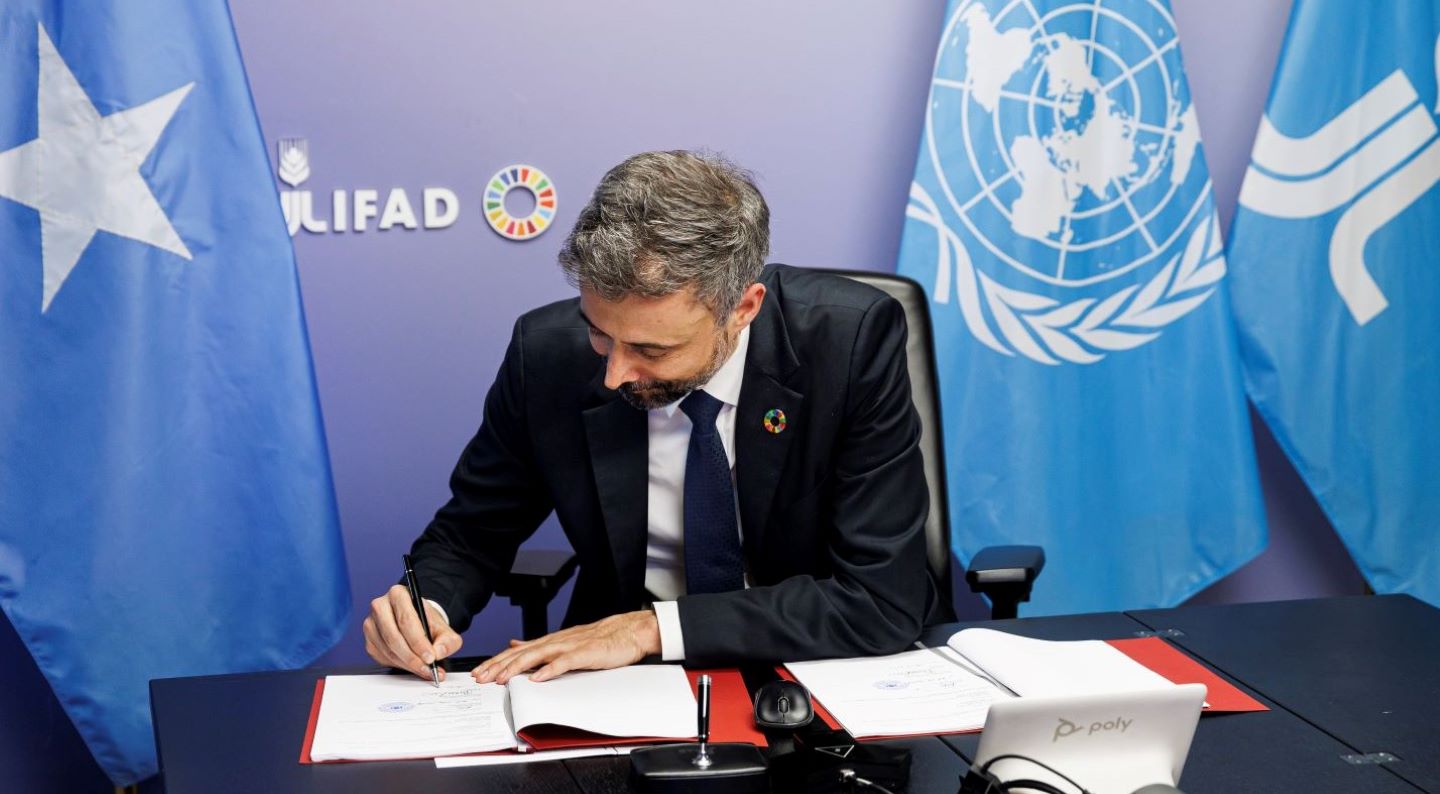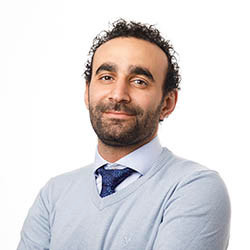Somalia and IFAD sign new financial agreement to strengthen food security and build resilience in rural areas
IFAD Asset Request Portlet
Asset Publisher
Somalia and IFAD sign new financial agreement to strengthen food security and build resilience in rural areas
02 April 2024
Rome, 2 April 2024 – To support Somalia's efforts to address the effects of decades of conflict, environmental degradation, and underfunded infrastructure and agricultural productivity, the International Fund for Agricultural Development (IFAD) and the Government of Somalia have signed a new financial agreement to fund the Rural Livelihood Resilience Programme (RLRP).
The new RLRP programme, worth US$31.22 million, will improve the lives of rural smallholders by raising their productivity, incomes, and nutrition security in a sustainable way. This initiative marks IFAD's first direct investment in Somalia following the clearing of the country's arrears with the fund during IFAD’s 2023 Governing Council.
“Rural development in Somalia faces numerous challenges, stemming from decades of conflict, environmental degradation, limited infrastructure, in addition to cycles of drought and flooding,” said Alvaro Lario, President of IFAD. “Upscaling our investment in Somalia is very important in this moment of increasing climate change to make sure that the poorest and the most vulnerable in rural areas are not left behind.”
The project goal is to address the complex challenges within Somalia's agricultural sector. It focuses on addressing water scarcity worsened by climate change through community-based water infrastructure investments, vital for agricultural activities. Moreover, it aims to increase agricultural productivity by updating farming methods, enhancing market access, and offering financial support along the crop and livestock value chains. Acknowledging the weakening of governance structures due to long-term unrest, the project stresses capacity building and evidence-based policy development to reinforce institutional frameworks. It aligns with IFAD's priorities, incorporating climate finance, nutrition sensitivity, and youth inclusion, leveraging IFAD's expertise to promote community-led development.
“The programme is of vital importance for Somalia and sets to transform rural livelihoods through climate resilient agriculture,” said Mohamed A. Hayir, Minister of Agriculture and Irrigation, Somalia. “It helps to equip the rural poor with skills and jobs to achieve food security and prosperity despite the challenges of climate change.”
The project aims to reach 30,000 Somali households over 8 years while giving priority to the most vulnerable groups, particularly women and youth, who face heightened risks from climate change and conflict-related challenges. By targeting training initiatives towards community groups, including women and youth, the project aims to enhance ownership, sustainability, and conflict management, with a target of 50% female and 40% youth beneficiaries. Moreover, it focuses on bolstering community resilience by improving infrastructure, benefiting 12,000 community group members, enhancing water access for 54,000 individuals, and providing training on operation and maintenance for 6,000 people. Additionally, support for smallholder livelihoods includes training in new technologies, business development services for rural enterprises, and nutritional support for 27,000 individuals, collectively benefiting 18,000 people directly and indirectly.
Thanks to generous contributions from Belgium, Germany, Italy and Sweden, Somalia cleared its debt with IFAD. This debt impeded Somalia from receiving highly concessional loans and grants from IFAD since 1991, at the same time that the civil war devastated the country.
The main creditors have formally decided to scale-up investments for development by confirming Somalia’s eligibility in March 2020 for the Heavily Indebted Poor Countries (HIPC) initiative. This initiative aims to support the country in clearing its debt arrears and move towards a better economic and socio-economic trajectory.
RLRP is the first project in Somalia to be funded directly from IFAD's core resources after last year’s Governing Council decision to lift the country’s arrears with the fund. Having cleared its debt to IFAD, Somalia gained access to crucial resources, enabling IFAD to commit funding through the performance-based allocation system.
“Somalia was able to deliver on rigorous reforms and achieve the HIPC completion point in December 2023,” said Bihi Egeh, Minister of Finance, Somalia. “We thank our creditors and development partners for clearing Somalia’s arrears and providing financial assistance to support country’s resilience and growth.”
Despite arrears and loan suspensions, IFAD has channelled approximately US$40 million to Somalia since the 1990s through grant-financed projects, demonstrating continued commitment to rural development. The use of third-party implementation partners kept IFAD engaged in Somalia during the 30-year suspension of financing through grant-financed projects.
Press Release no IFAD/24/2024
IFAD is an international financial institution and a United Nations specialized agency. Based in Rome – the United Nations food and agriculture hub – IFAD invests in rural people, empowering them to reduce poverty, increase food security, improve nutrition, and strengthen resilience. Since 1978, we have provided more than US$24 billion in grants and low-interest loans to fund projects in developing countries.
A wide range of photographs and broadcast-quality video content of IFAD’s work in rural communities are available for download from our Image Bank.
